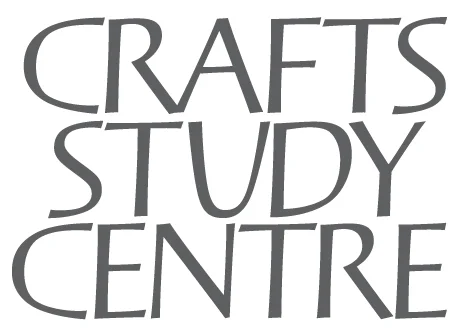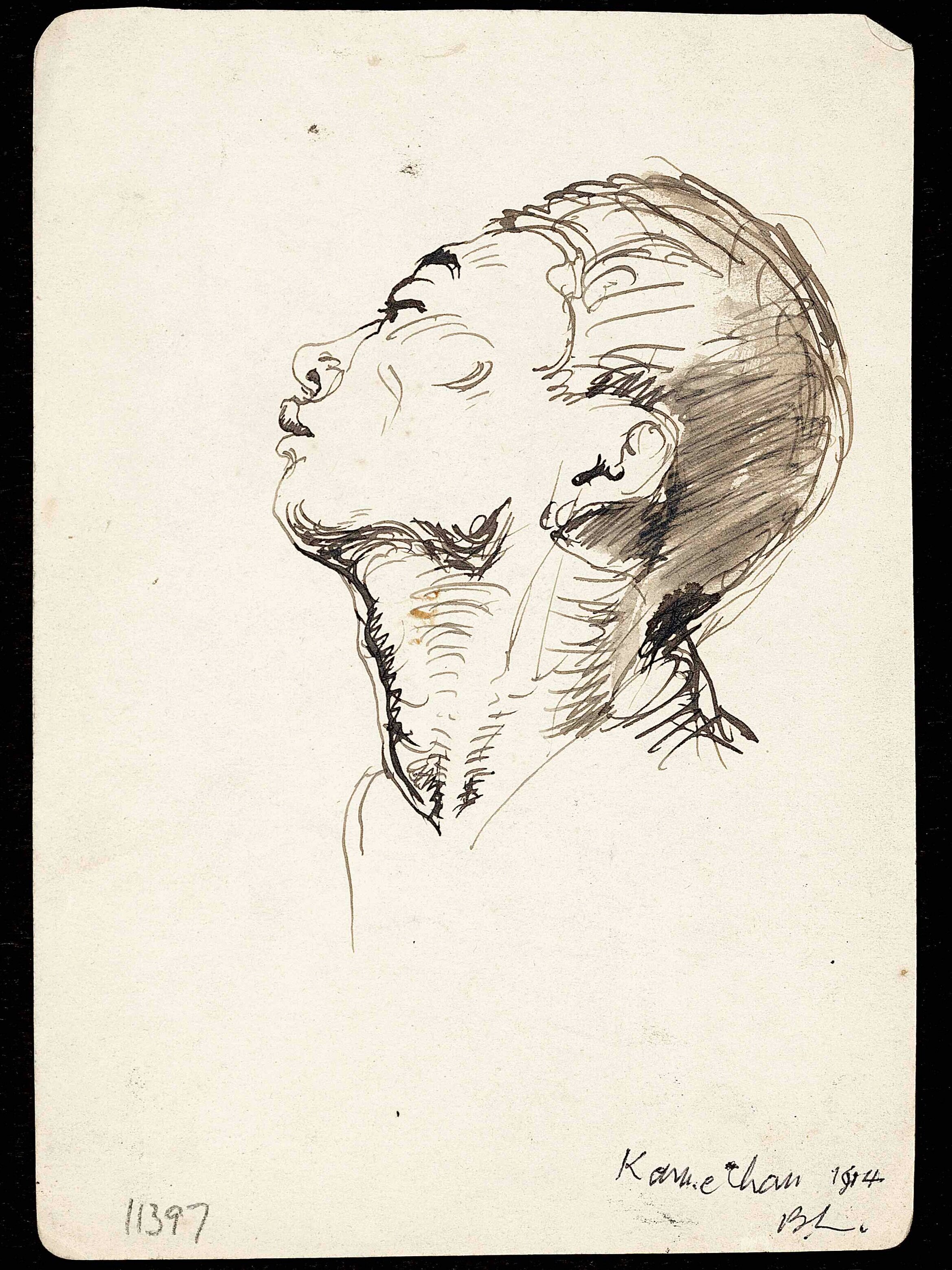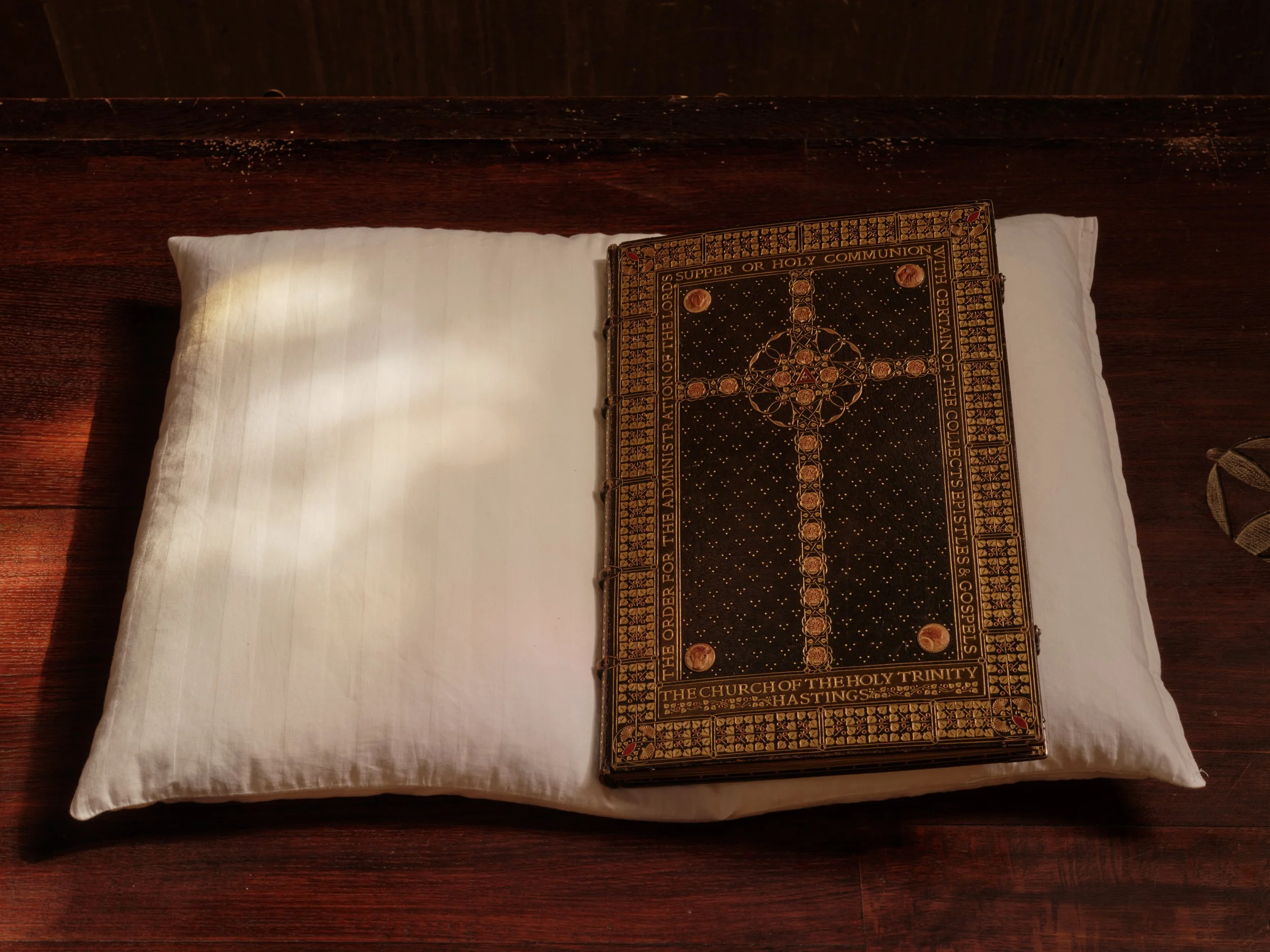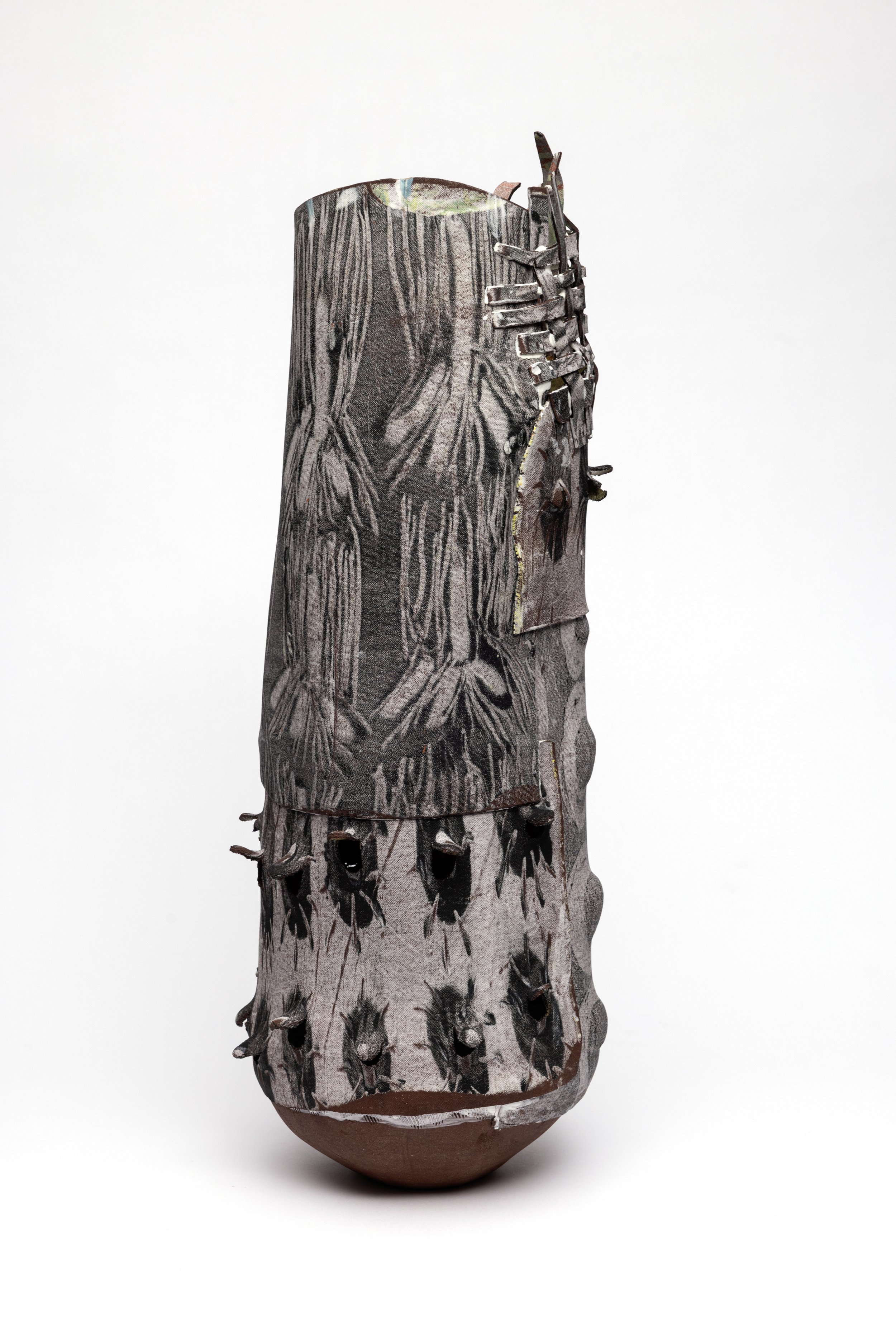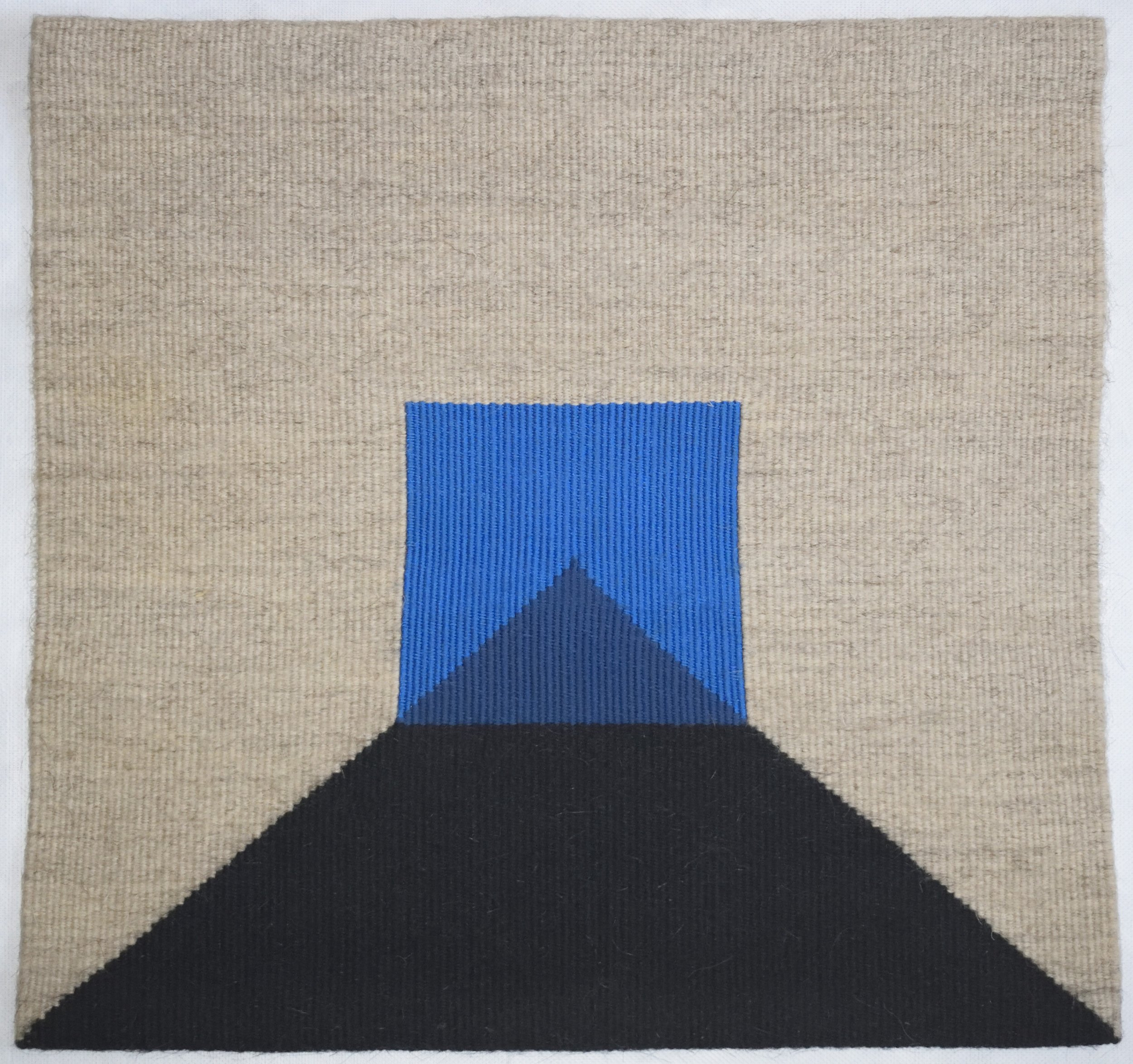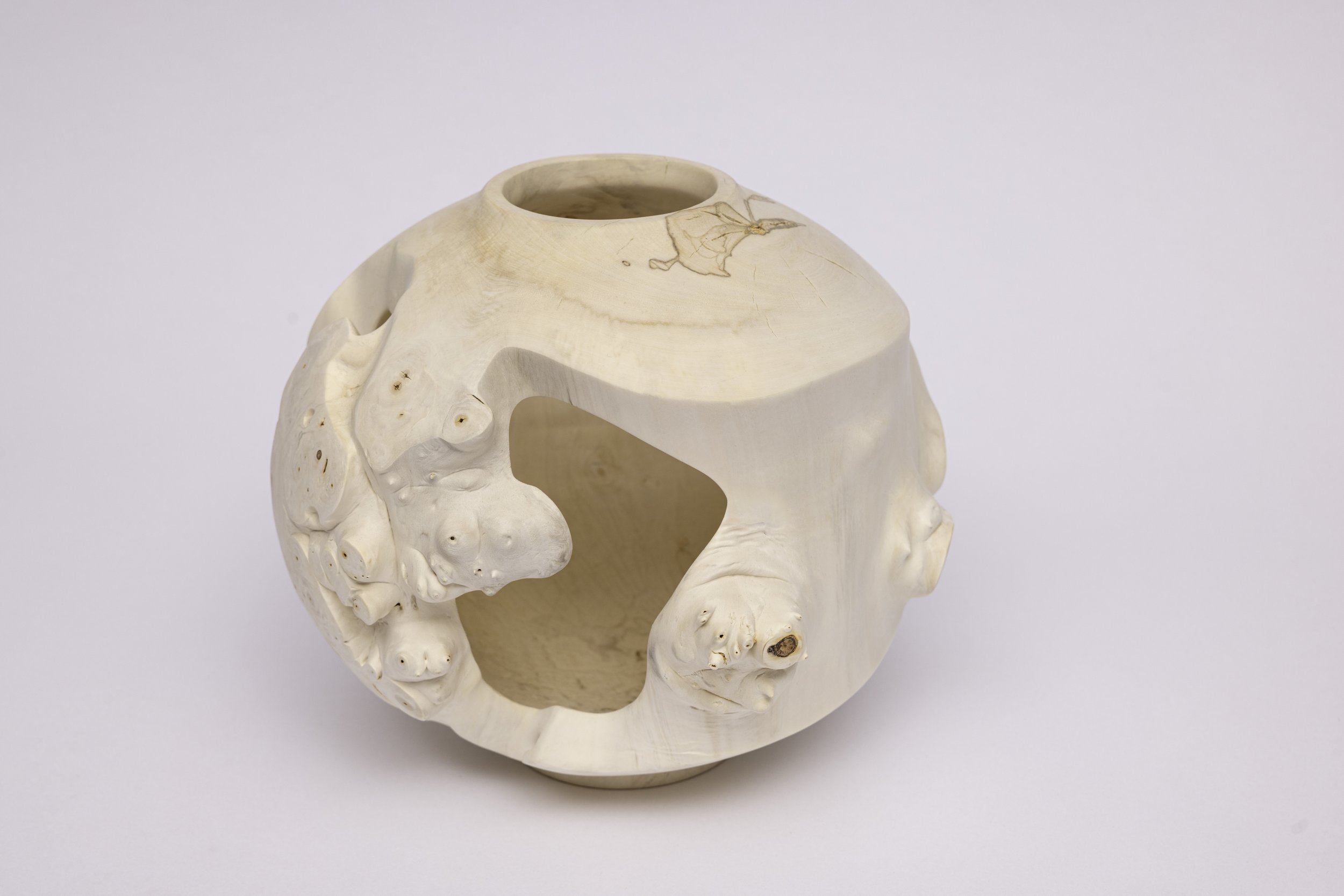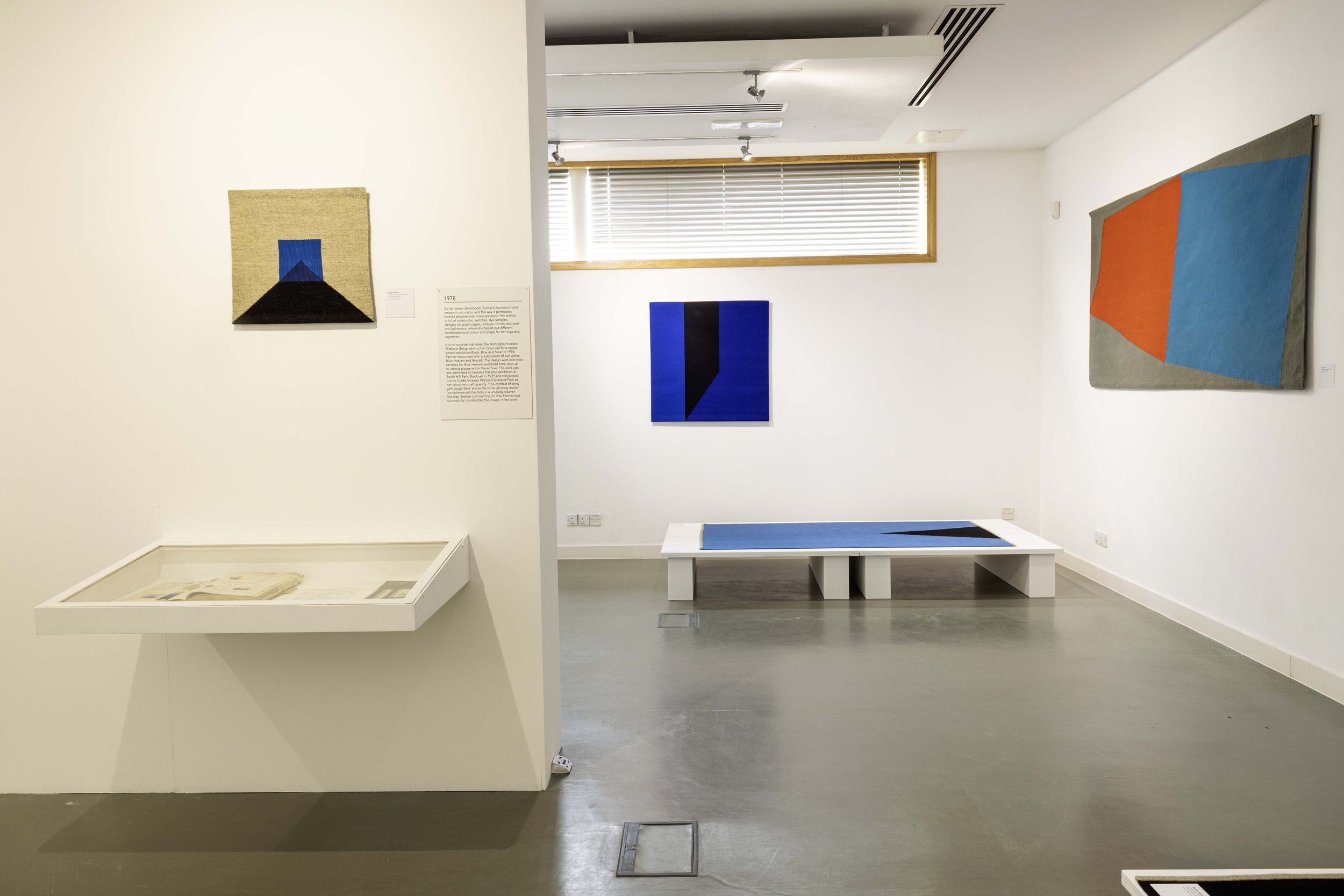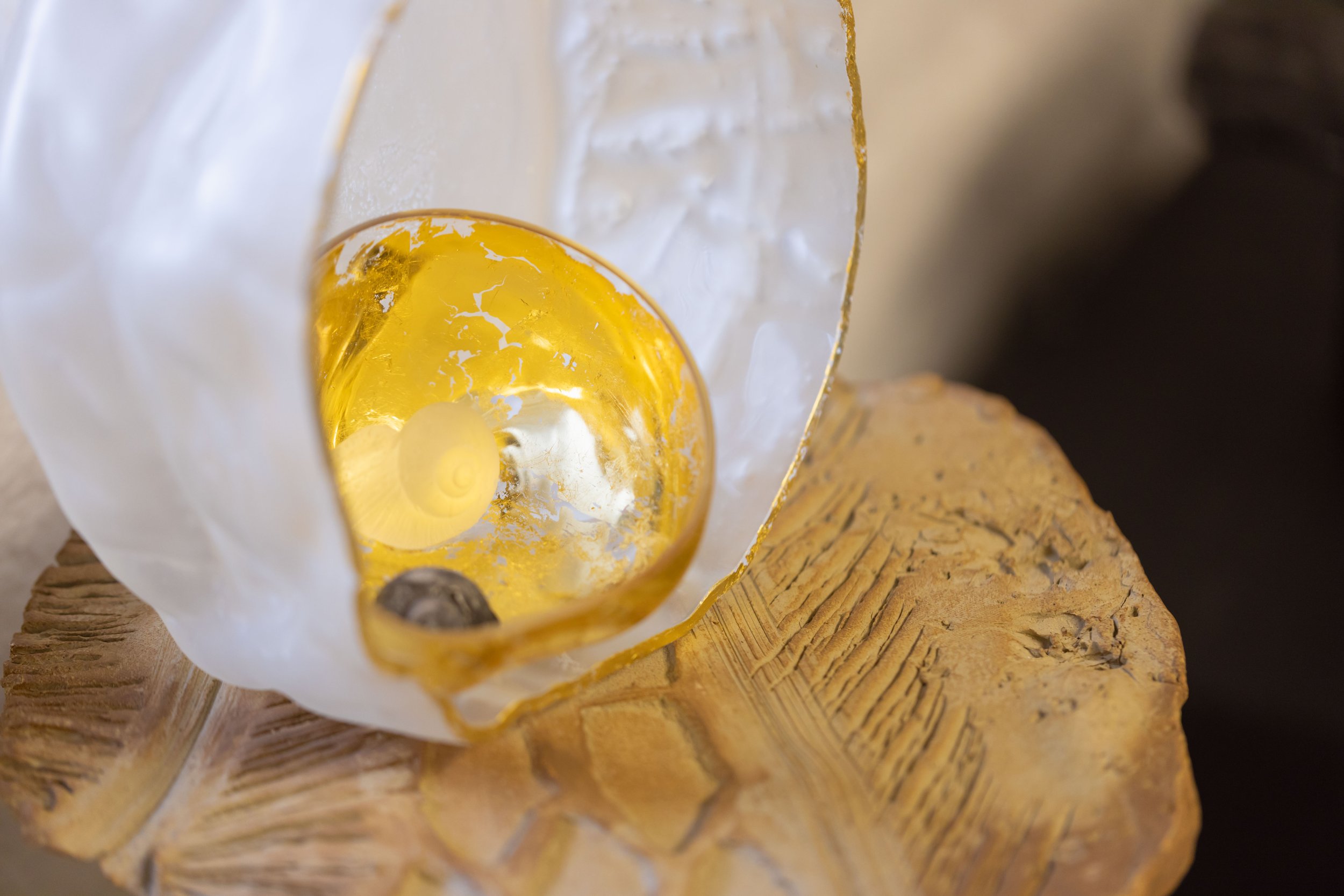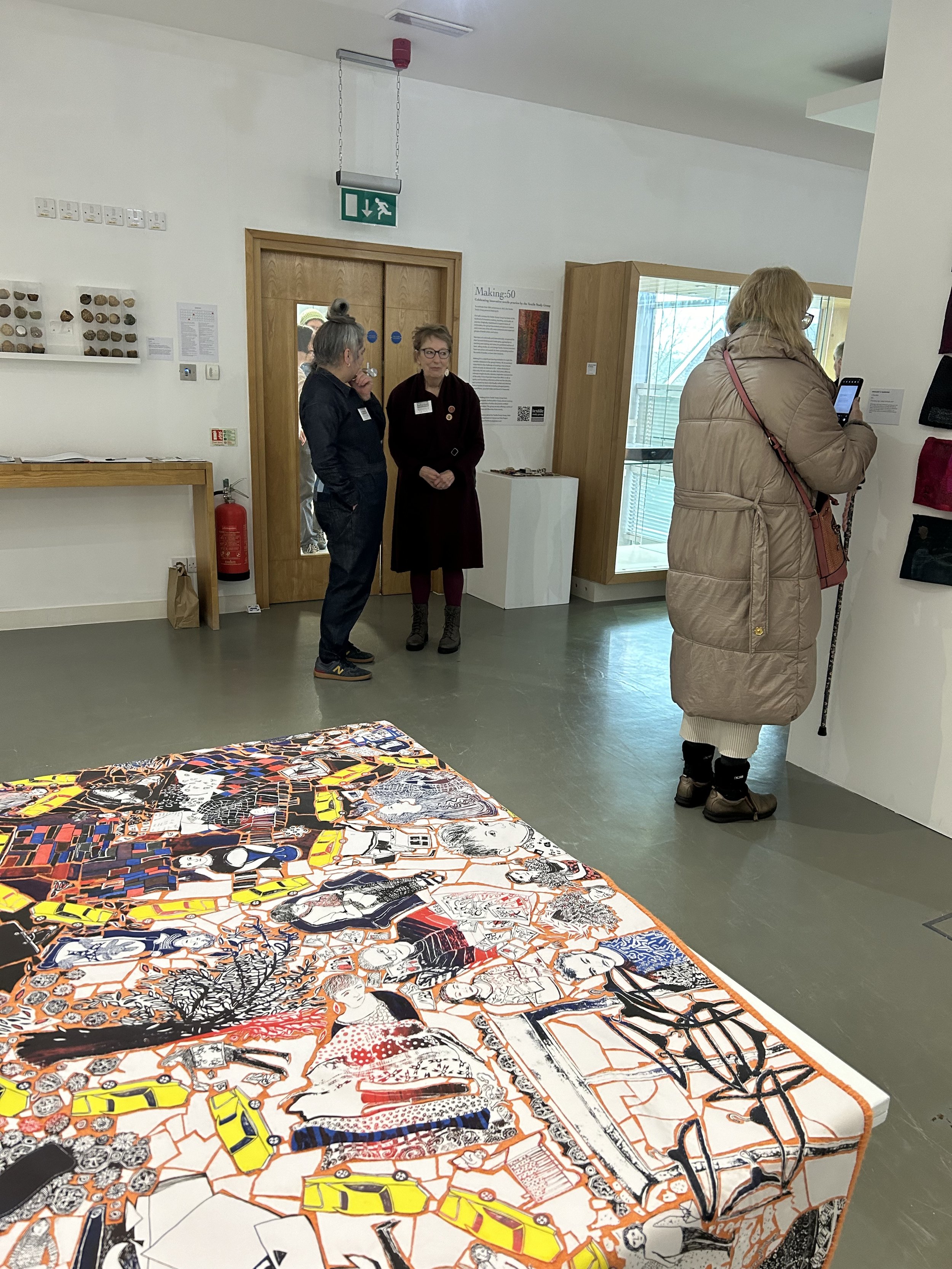INTRODUCTION TO OUR COLLECTIONS
/Robin Tanner, a much-loved teacher and a skilled etcher, was one of the pioneering founder Trustees of the Crafts Study Centre. He wrote that ‘ a group of friends – craftsmen and educationists – met from time to time in the late 1960s, to discuss the possibility of founding not a museum of objects untouchable behind glass but a living, expanding Study Centre where work could be held in the hand and enjoyed, and a whole archive consulted’.
Photograph of an exhibition at the Little Gallery in London, run by Muriel Rose (MRA_1196_l)
It took ten years and a very great deal of hard work for this dream to be realised. Tanner and his ‘group’ eventually formed a charitable trust in 1970, and they used their skills of persuasion and the deeper reaches of their very good craft address books to bring together a wonderful founding collection of the work of pioneer craftspeople for these related purposes of study and physical engagement with very carefully chosen artefacts.
Page from a notebook, Lucie Rie (2002_26_1_71a)
Dish, Michael Cardew (P_74_127)
Drawing by Bernard Leach (la_11397)
Bottle, Katharine Pleydell-Bouverie (P_74_154)
The collections grew out of the Arts and Crafts movement and into modernism and were especially strong in the interwar period of British crafts (as Christopher Frayling, a long-standing Chair of the Crafts Study Centre, elegantly put it, ‘the generation roughly between William Morris and the rise of art school crafts’). The works of Bernard Leach, Katharine Pleydell-Bouverie and Michael Cardew grounded the ceramics collections; the textiles of Rita Beales, Ethel Mairet, Phyllis Barron and Dorothy Larcher shaped the additions of woven and printed work; Edward Johnson and Irene Wellington underpinned the calligraphy holdings and furniture by the Barnsleys and Gimson (and later on, Alan Peters) settled the course of the furniture collections. These groupings took some time to emerge, and the exceptions are as interesting as the chosen fields: no glass; no jewellery; no metalwork. Bookbinding made a brief appearance. But no matter: it was a collection of weight as well as idiosyncrasy. And binding all together, one of the very great strengths of the collections, was the insistence that, wherever possible, makers would be asked to leave their archives: the drawings, letters, photographs, correspondence and pleasing (sometime very haunting) memorabilia that illuminated a life time’s practice. Founding archives include those relating to Bernard Leach; Lucie Rie; and the gallerist and curator Muriel Rose. The synthesis of the work and the considerations of work were drawn together, as Tanner put it, so that ‘the processes of purpose, planning and making are one’.
Chest of Drawers, Sidney Barnsley (f_77_3)
Woven tartan length, Ethel Mairet (t_74_27)
Stationery box, Ernest Gimson (f_79_1)
French Lines, Barron & Larcher (t_74_206_a)
The Crafts Study Centre today puts great store on the linkage of exhibition, drawn from its growing collections as well as contemporary work; and continues (although the pressure on space is immense) to collect from modernism through to post modernism, with especial interest in archives. With very few exceptions, the Trustees and members of a specialist Acquisition Committee, stay true to the subject tramlines noted above, and we are never so happy as when we are helping a researcher, a maker or a student, to come face to face with the collections and archives to develop critical practice, reflection and sometimes the making of new work.
Panel, Czech Christmas Carol, Irene Wellington (c_84_78_a)
